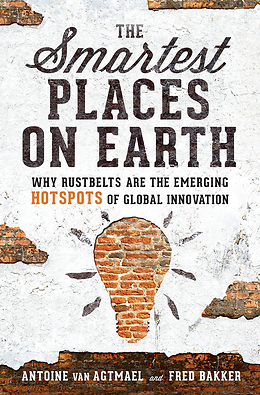

9:30 am EDT - 11:00 am EDT
Past Event
9:30 am - 11:00 am EDT
1775 Massachusetts Ave., NW
Washington, DC
 The conventional wisdom in manufacturing has long held that the key to maintaining a competitive edge lies in making things as cheaply as possible, which saw production outsourced to the developing world in pursuit of ever-lower costs. In contradiction to that prevailing wisdom, authors Antoine van Agtmael, a Brookings trustee, and Fred Bakker crisscrossed the globe and found that the economic tide is beginning to shift from its obsession with cheap goods to the production of smart ones.
The conventional wisdom in manufacturing has long held that the key to maintaining a competitive edge lies in making things as cheaply as possible, which saw production outsourced to the developing world in pursuit of ever-lower costs. In contradiction to that prevailing wisdom, authors Antoine van Agtmael, a Brookings trustee, and Fred Bakker crisscrossed the globe and found that the economic tide is beginning to shift from its obsession with cheap goods to the production of smart ones.
Their new book, “The Smartest Places on Earth” (PublicAffairs, 2016), examines this changing dynamic and the transformation of “rustbelt” cities, the former industrial centers of the U.S. and Europe, into a “brainbelt” of design and innovation.
On Wednesday, April 6 Centennial Scholar Bruce Katz and the Metropolitan Policy Program hosted an event discussing these emerging hotspots and how cities such as Akron, Albany, Raleigh-Durham, Minneapolis-St.Paul, and Portland in the United States, and Eindhoven, Malmo, Dresden, and Oulu in Europe are seizing the initiative and recovering their economic strength.
Join the conversation on Twitter at #SmartestPlaces
Smartest Places on Earth presentation 4.6.16 from Brookings Metropolitan Policy Program

Darrell M. West
June 24, 2025

Nicol Turner Lee, Judy Wang
June 16, 2025

Darrell M. West, Yong Liu
June 16, 2025